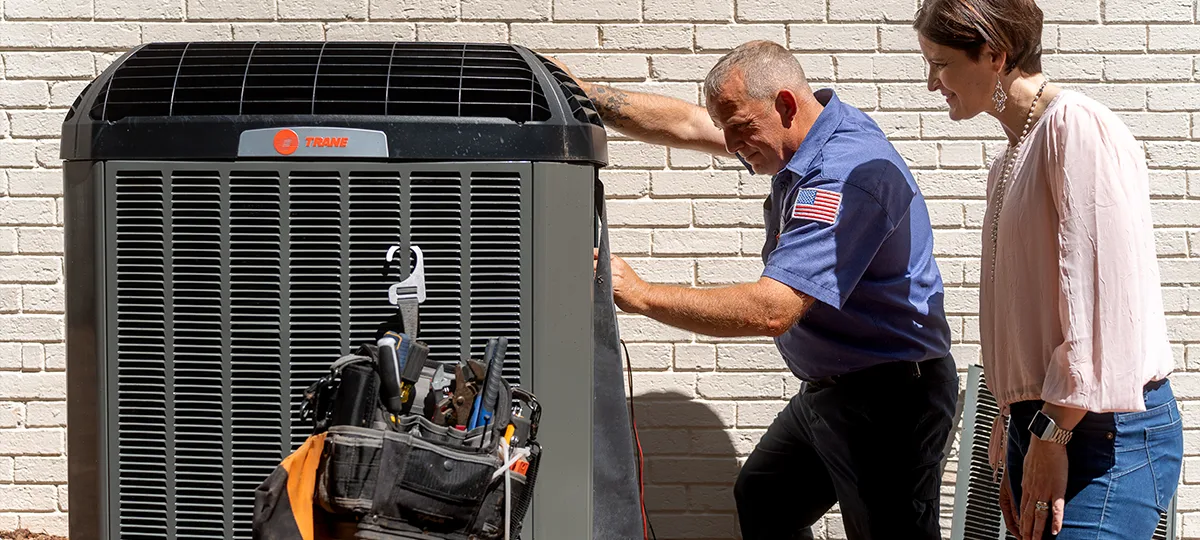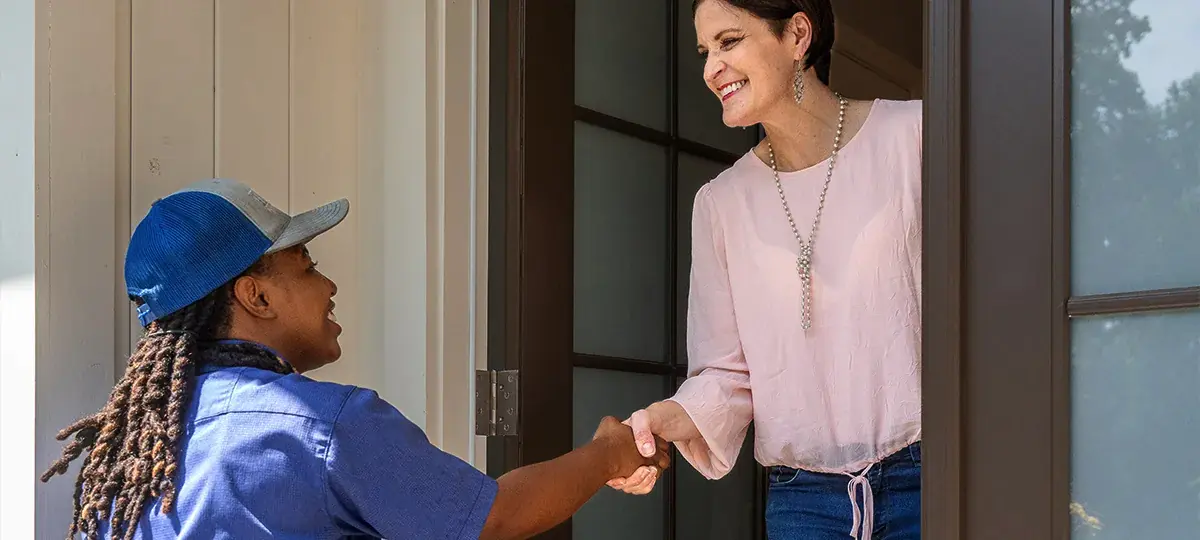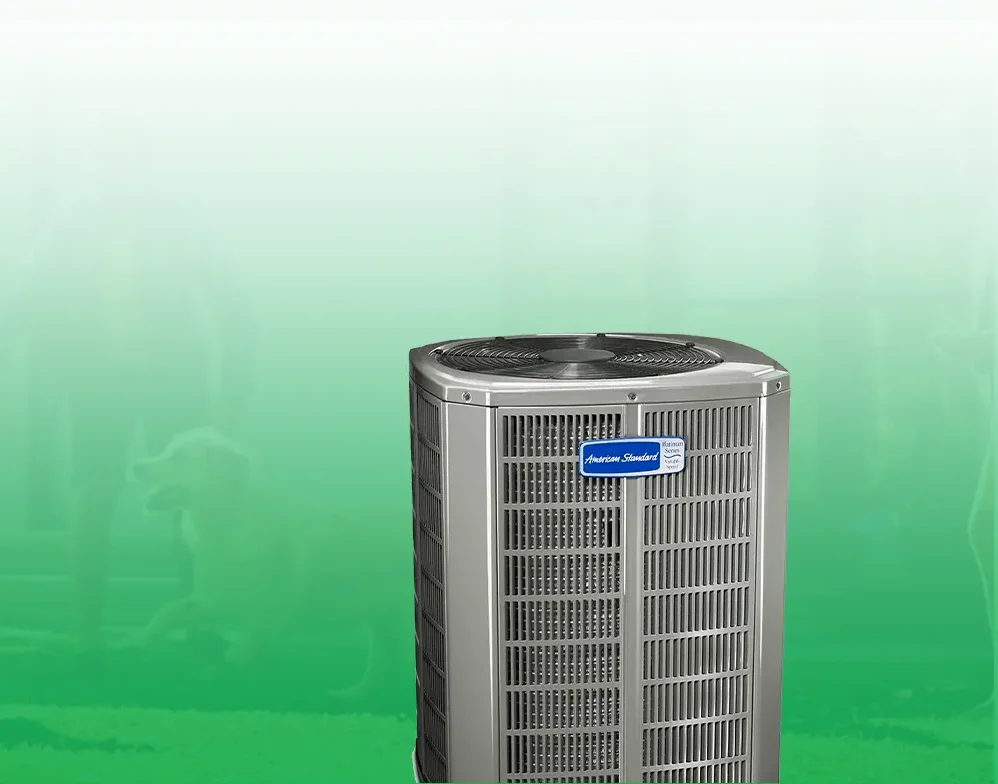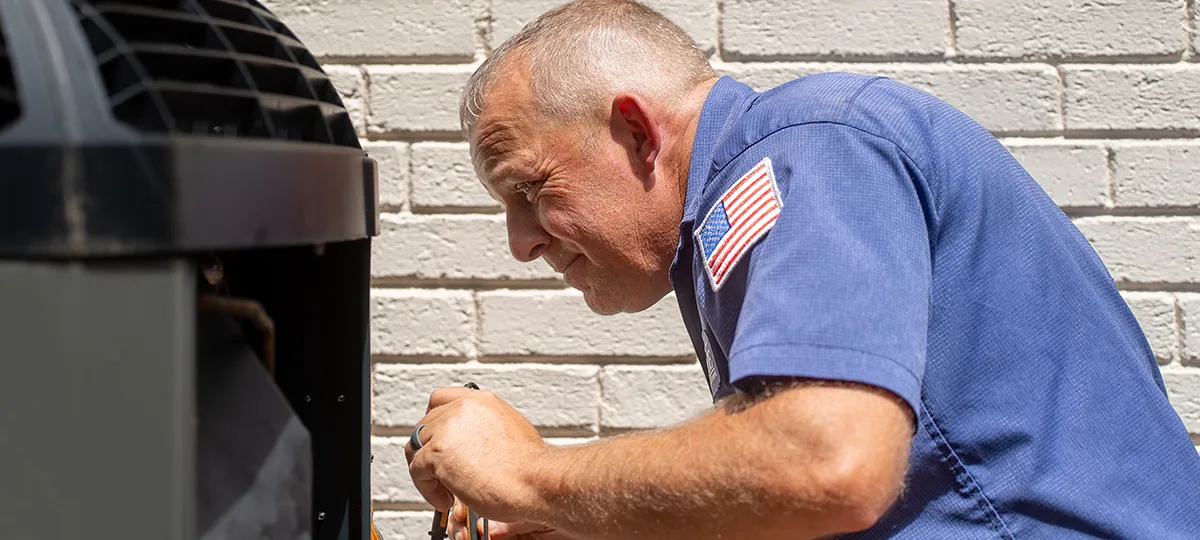When the heat of summer arrives, the last thing you want is to find that your AC stopped working. It’s like having your comfort abruptly ripped away, and your home turns into a sauna. While you might want to panic, take a deep breath—many common causes for an AC failure are easy to identify and fix. In this post, we’ll walk you through six reasons why your AC might have stopped working, and what you can do about it.
1. Dirty Air Filter
It might sound a little too simple, but a clogged air filter is one of the most common reasons your AC stopped working. Air filters trap dust, dirt, and debris from circulating in your home, but when they become too clogged, they restrict airflow. This can cause the AC unit to freeze, overheat, or shut down altogether.
What You Can Do: Replacing or cleaning the air filter is a simple fix and one of the most important steps in maintaining your AC. Air filters should be replaced every 1-3 months, especially if you have pets or live in a dusty area. When airflow is restricted due to a dirty filter, your AC won’t be able to cool your home effectively, and the system can overheat, leading to a breakdown. If the filter looks dirty or clogged, it’s time to replace it. And always ensure that the filter is the correct size for your unit!
Extra Tip: If you find that your filter is getting dirty faster than expected, it could be a sign of other issues like poor ventilation or excessive dust buildup in your home.
2. Thermostat Issues
Your thermostat is the brain of your HVAC system. If the thermostat is malfunctioning, your AC stopped working might be due to incorrect settings, dead batteries, or a faulty connection between the thermostat and the AC unit. If the thermostat doesn’t communicate properly with the unit, the system won’t know when to kick in.
What You Can Do: Check your thermostat settings and make sure it’s set to “cool” and the desired temperature. If the display is blank, the batteries may need replacing. If replacing the batteries doesn’t work, it might be time to replace the thermostat entirely. Programmable or smart thermostats are great upgrades because they help save energy and provide better control over your home’s temperature. Make sure your thermostat is calibrated properly for optimal performance.
Extra Tip: If your thermostat is old, it may be beneficial to upgrade to a newer model with advanced features like Wi-Fi connectivity and energy-saving settings.
3. Tripped Circuit Breaker
When your AC stopped working, the issue might be electrical. AC units use a lot of power, and if there is a surge or a power overload, the circuit breaker may trip to prevent damage. This is a common issue, especially if your unit is older or if you’ve recently had power fluctuations in your area.
What You Can Do: Go to your electrical panel and check the breaker that controls your AC unit. If it’s tripped, flip the breaker back on. If the breaker trips again, it may be a sign of a more serious electrical issue, like a short circuit or faulty wiring. In that case, it’s best to contact an electrician or HVAC technician to inspect your system. Regular electrical inspections can help prevent this kind of issue.
Extra Tip: To prevent the breaker from tripping, make sure not to overload the circuit with other devices that may draw power from the same breaker as your AC unit.
4. Low Refrigerant Levels
Your air conditioning system relies on refrigerant to cool your home by absorbing heat and transferring it outside. If your AC stopped working due to low refrigerant levels, it means there’s likely a leak in the system. Without enough refrigerant, your unit can’t cool the air effectively, and the coils can freeze.
What You Can Do: If you suspect a refrigerant leak, call a professional HVAC technician immediately. Low refrigerant levels can only be fixed by refilling the system, but before doing so, the technician will need to identify and repair the leak. It’s illegal to top off refrigerant without fixing the leak first, as it could cause damage to the environment. Additionally, leaks can lead to expensive repairs if not addressed quickly, so make sure to call in an expert if you notice a decrease in cooling performance.
Extra Tip: If your AC seems to be working, but the cooling isn’t as efficient, or if the temperature fluctuates, it’s a good idea to have the refrigerant levels checked as part of a routine maintenance service.
5. Blocked Condenser Coils
The condenser coils in your AC unit are responsible for releasing heat that’s absorbed from the indoor air. If the condenser coils are blocked by dirt, debris, or even grass and leaves around the unit, the heat exchange process is disrupted, which can cause your AC to stop working.
What You Can Do: Turn off the AC and inspect the outdoor unit. If you see any debris or weeds blocking the condenser coils, clear them away carefully. Use a soft brush or vacuum to clean the coils themselves. If you notice that the coils are particularly dirty, it might be time to call in a technician to clean them thoroughly. Keeping the area around the outdoor unit clear of debris can improve the overall efficiency of your system.
Extra Tip: Regularly cleaning the area around your outdoor unit, such as trimming bushes or weeds, can prevent a future buildup of debris and ensure the coils continue to work effectively.
6. Frozen Evaporator Coils
The evaporator coils inside your AC are responsible for cooling the air. If these coils freeze, it can stop the system from working properly. Frozen coils usually happen due to a lack of airflow or a refrigerant leak. When the coils freeze, the air flowing through your AC is unable to cool down, and the system essentially shuts down.
What You Can Do: If you suspect the coils are frozen, turn off your AC immediately and allow the coils to thaw. This could take several hours, depending on the extent of the freeze. After thawing, check the filter and replace it if necessary. Also, ensure that your ducts are not blocked, and the airflow is unobstructed. If the problem persists, it could be due to low refrigerant levels or another underlying issue that needs professional attention.
Extra Tip: If the coils freeze regularly, it could indicate that your system needs a more thorough inspection to check for refrigerant leaks or airflow restrictions.
Bonus Tip: Regular Maintenance Can Prevent AC Problems
The AC stopped working problem is often the result of skipped maintenance. A well-maintained system works more efficiently, lasts longer, and is less likely to break down unexpectedly. Preventative maintenance can help catch issues before they become major problems. This includes checking refrigerant levels, cleaning condenser coils, changing air filters, and ensuring that all electrical components are functioning correctly.
What You Can Do: Schedule an annual maintenance appointment with a certified HVAC technician. These checkups can help avoid costly breakdowns and ensure your AC is running at peak performance, even in the hottest months.
Extra Tip: Many HVAC companies offer maintenance plans that include regular inspections, which can help you stay on top of maintenance without needing to remember when it’s time for a checkup.
When your AC stopped working, it’s easy to panic, but in many cases, the issue can be quickly diagnosed and fixed. Whether it’s a dirty air filter, a faulty thermostat, or a refrigerant leak, understanding the cause of the problem is the first step to restoring your home’s comfort. Regular maintenance can also help extend the life of your AC and reduce the chances of a breakdown when you need it most.
Remember, if you’ve tried troubleshooting and your AC is still down, don’t hesitate to contact a professional HVAC technician. With the right care and attention, you can keep your air conditioner running smoothly for years to come.
Need Help Getting Your AC Back in Action?
At Horne HVAC, we specialize in quick, reliable solutions for all your HVAC needs. If your AC stopped working, our team is here to help diagnose and fix the issue fast. Contact us today for professional service and get your home back to a comfortable temperature in no time!
















